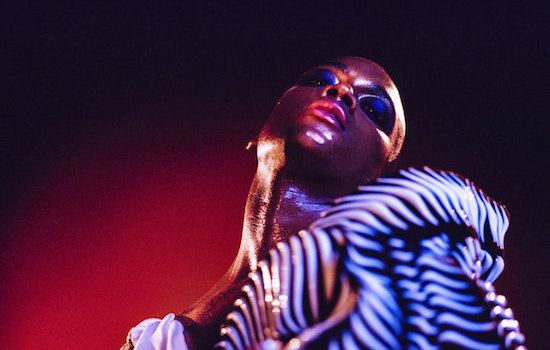Recently I read an interview with Lotic where they describe being evicted from their flat in Berlin because the person they were subletting from hadn’t paid the rent. They were suddenly homeless, then they got the flu and their relationship ended. ‘What were you expecting?’ I thought. ‘That’s what happens when you illegally sublet. You should have been more careful.’
I know – what a horrible, shitty reaction. But so many of us are living in a constantly shifting landscape, in overpriced cities where the gig economy and ‘flexible’ working demand a constant hustle just to keep your head above water. We feel precarious, exhausted and anxious, all the time. Sometimes, feeling helpless and with nothing to fall back on – no savings, no benefits, decimated healthcare – you develop a cold shroud of cynicism about other people’s misfortune. Maybe because it helps you to pretend your situation is somehow different to theirs.
One question seems to run right through Power: how do you get control over your life when you feel so powerless? In the past, for Lotic, the answer may have been brute resilience. Arriving from the US several years ago, they became an integral part of the Berlin queer club scene, helping to form the Janus club night with fellow DJs M.E.S.H. and KABLAM, and releasing a brace of EPs (such as 2013’s Fallout on Sci-Fi and Fantasy, 2015’s Heterocetera on Tri Angle), a debut LP (2014’s Damsel In Distress) and remixes/edits (including turning Beyonce’s “Formation” into a militaristic banger). These releases have a particular metallic toughness, complete with discordant klaxons, synths that wail like a spooked animal and percussive sounds that sound like angry wolves corralled into battle. Alongside a persona of being a “ferocious femme” and the “scary club terrorist”, this created an aura of intensity, a shield of protection that could deflect and ward off danger. They felt like a warning to anyone who might threaten Lotic: BACK OFF.
When it came to making Power, Lotic could no longer rely on such strategies. Alone, homeless, drinking too much, subjected to violence, stuck in a fugue of anxiety and turmoil, they changed their approach to music and to life in general. On this album, you can hear Lotic embracing feelings and attitudes that could seem like anathema to caustic strength and brittle resilience. Across 12 songs, they process different emotional states and allow contradictory modes of thought. Many of the track titles – ‘Resilience’, ‘Fragility’, ‘Nerve’, ‘Heart’, ‘Bulletproof’, and ‘Distribution Of Care’ – spell this out loud and clear: you can be both strong and fragile, afraid and brave, fierce and caring.
We feel this strength/fragility in abundance from the very first notes, on opener ‘Love and Light’. Glistening pearls of sound drop onto a elephantine bassline; twinkling harpsichords and strings are the first shimmers of hope that glow through a fog of despair. And throughout Power we see a slenderness and subtlety in the production, allowing moments of softness and iridescence to shine through. On ‘Resilience’, lithe melancholic lines and brittle chimes contrast with fiery blasts of distorted bass; on ‘Fragility’ electronic tones give a gentle soothing meter over a jagged metallic noise-wash in the background, all set to a stuttering military beat that seems to give out a sigh at the end of each line. In such tracks, you can still hear a sense of confrontation but the energy has been rerouted, arranged into a different form. There is vulnerability alongside the pride and anger.
That vulnerability is further accentuated in the way Lotic now provides vocals in several of the tracks. On ‘Hunted’ (and its video), they whisper “Brown skin, masculine frame / Head’s a target / Actin’ real feminine / Make ’em vomit.” In the video we see Lotic shift from hunted to hunter, they turn on their attackers and arise with a new sense of self and purpose. On closing song ‘Solace’, Lotic is a melancholic soul diva, singing, “How can I just be / Healthy living free?” They repeat self-soothing mantras – “It’s gon’ be okay / Hang in there” – as the track bombards them with blocks of noise. Lotic’s vocals on Power convey an affirmation of their experiences over the last few years, a declaration of pride and confidence, and a kind of self-care and reassurance.
Alongside the tenderness and warmth, there are still the headstrong abrasive sounds associated with Lotic. ‘Distribution Of Care’, ‘Bulletproof’ and ‘Power’ have discordant noises, splintered oscillations, and collapsing rhythms that shave off the hairs in your inner ear. But it is always noise with a purpose. Then there’s the drive and force of the rhythms: Lotic has talked about the influence on Power of the marching bands they heard while growing up in Houston and New Orleans. Most of the tracks here have a ramshackle industrial bucket percussion or a trap beat; whipcrack flurries of snares and toms drive the track, giving a strong bedrock so the more maniacal and unhinged moments can really fly.
This is an album about political and personal power, although there are no slogans or pontifications. The most explicitly political track, ‘Distribution Of Care’, has no lyrics at all – just four minutes of tense strings and rolling beats. But the key to the power in Power is in Lotic’s acceptance of what they can and cannot control, specifically in their journey of transformation and gender fluidity. Later in that same interview Lotic says, “The way that I look probably will change over the course of promoting this record I’m not afraid of showing it and I’m not afraid to talk about it.” We are hearing music from a person who is no longer fearful or ashamed about who they are. This power is not conceptual, but emotional. Lotic, over the past few years, has gone through the wringer and come out rejuvenated – and they’ve given us a soundtrack to help us do the same.



